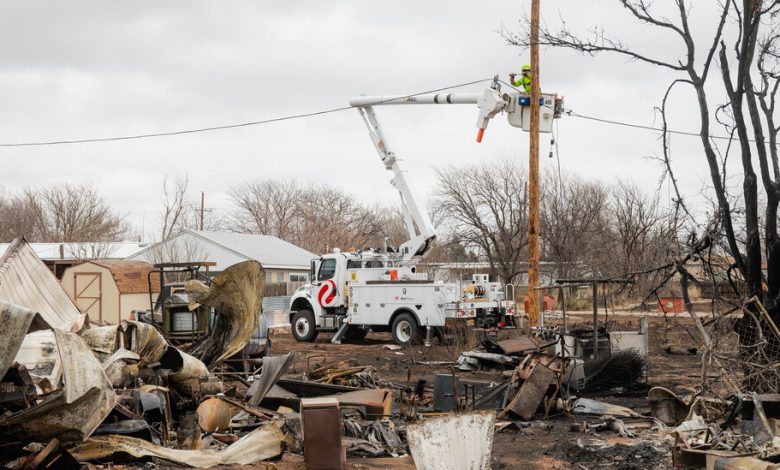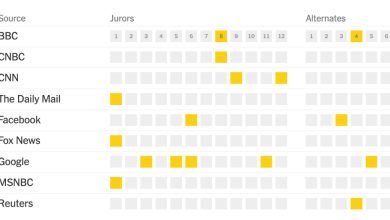Utility-Caused Wildfires Are Becoming a National Problem

After a utility pole fell and ignited a wildfire, Frank King and his family raced to escape as electrical transformers exploded around their homes near Oregon’s coast. A bright red glow was visible in the rearview mirror for miles.
The fire three and a half years ago destroyed 300 homes in Otis, Ore., including the one that Mr. King, a 101-year-old veteran of World War II, had lived in for almost three decades.
“A lot of the things that reminded me of the good things in my life are gone,” said Mr. King, who believes things might have turned out differently had his utility, PacifiCorp, turned off its power lines before a severe windstorm. “It takes a terrible toll on me.”
Large wildfires started by power lines and other utility equipment were, not that long ago, considered something that happened mostly in California. But these disasters are increasingly happening in many more places as forces turbocharged by climate change like extreme heat and drought wreak havoc on electric grids that were not built or upgraded to withstand them.
Xcel Energy, a utility company based in Minneapolis, recently acknowledged that its equipment most likely started the Smokehouse Creek Fire last month in the Texas Panhandle. In August, Hawaiian Electric said one of its power lines had ignited the devastating fire in Lahaina on the island of Maui. And this month, a jury ordered PacifiCorp to pay $42 million to 10 families that lost homes in the fire that forced Mr. King to flee his house on Labor Day weekend in 2020.
In all these cases, the utilities argued that they were not negligent and should not be penalized for the fires that their equipment had started.



